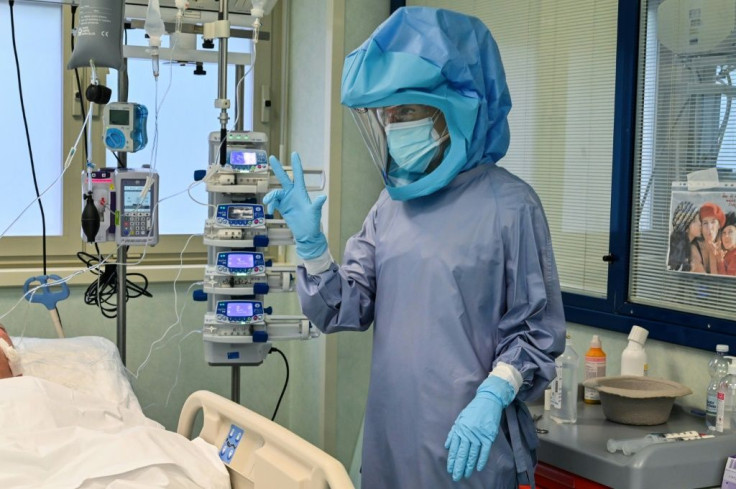The End Of COVID Pandemic Could Mean A Seasonal Virus That Sticks Around, Experts Predict
As cases of COVID-19 surge once again, scientists are suggesting that after the pandemic comes to an end, COVID may shift to a “seasonal cycle” virus.
While the U.S. is not near the end of the pandemic, researchers are already looking at what this might look like and how surges of the virus are taking on a pattern that seems to be aligning with the seasonal changes.
As the U.S. enters winter, COVID cases are up 62% from November, reaching an average of 121,084 new cases a day as of Thursday, according to data from Johns Hopkins University, as reported by CNN.
Hospitalizations are on the rise, spiking in the Midwest after seeing a decline during the summer.
The U.S. is on the brink of a possible winter surge in COVID cases.
Dr. Laolu Fayanju, a physician at Oak Street Health in Cleveland, told CNN that “we’re living through an intra-COVID world, and in a post-pandemic COVID world, I think what we would see is an endemic infection, not unlike the seasonal flu.”
“Seasonality is real,” Dr. Donald Burke, a professor and former dean at the University of Pittsburgh Graduate School of Public Health, told CNN. "We think that it will be seasonal for the foreseeable future.”
Scientists also point to the COVID waves that have happened in the winter previously.
“Since it has been doing it twice so predictably, it's highly likely that a winter wave will happen again,” said Dr. Hawre Jalal, an assistant professor at the University of Pittsburgh.
However, precautions can be taken to manage a seasonal wave before it sets in, Sen Pei, assistant professor of environmental health sciences at Columbia University's Mailman School of Public Health, told CNN.
“People should take precautions during the winter," Pei told the news outlet, adding that vaccinations and booster shots are important in “reducing severe disease outcomes.”
President Joe Biden has also looked to prepare the nation for a possible winter COVID surge, unleashing a strategy to fight the pandemic during the colder weather months. Biden announced last week that his plan “doesn't include shutdowns or lockdowns, but widespread vaccinations, and boosters, and testing and a lot more.”

© Copyright IBTimes 2025. All rights reserved.





















